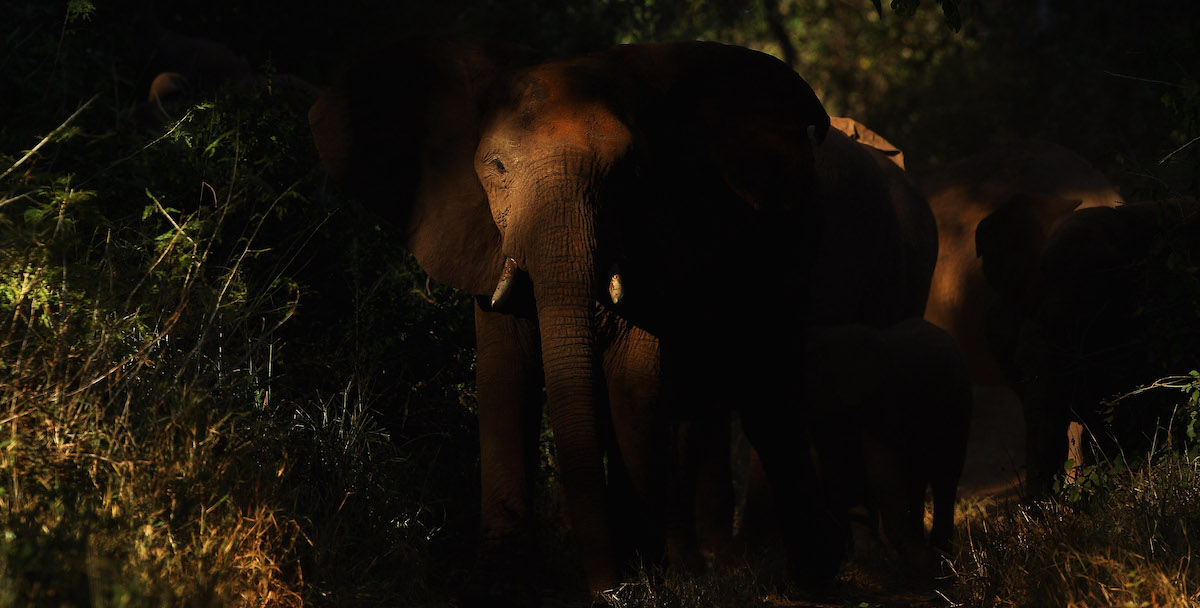In an experiment using different recordings, several animal species were more disturbed by hearing lion sounds
A research group conducted an experiment in the Kruger National Park, South Africa’s most famous nature reserve, to investigate which sounds alert wildlife, noting that in many cases, it is the sounds of people that frighten giraffes, zebras, impalas (antelopes), elephants and antelopes the most. Many other animals, superior to the sounds made by large predators such as lions. The study appears to indicate that the animals are extremely wary of humans, perhaps due to poaching, and could lead to the development of new solutions to reduce illegal hunting along the Kruger border, which is difficult to monitor by police.
The research was conducted by a research team from Western University (Ontario, Canada) specializes in studying the factors that cause fear in wild animals. It was the study published Recently in the scientific journal Current biology The goal, he explains, was to understand where humans fit into a sort of classification of signs that scare animals the most.
The experiment consisted of installing some devices to reproduce different types of sounds, and they were applied to some trees near about twenty water wells, where animals often gather during the dry season to drink and refresh themselves. The devices are programmed to be always on, activated thanks to motion sensors, each time playing a different audio clip chosen at random from the playlist.
There were soothing sounds such as the singing of birds that live in the area and others chosen to elicit a reaction of some kind in the animals, such as dogs barking, gunfire sounds, lions chirping (but not roaring)) and human voices taken from some news programs (both in local languages Or in English). The audio clips were played by the devices at the same volume, in order not to distort the experience and to focus on the type of clip.
The devices were monitored by a series of cameras, recording the animals’ reaction each time the motion sensors played a clip. The research group then calculated reaction times and assessed whether the animals chose to escape or not to determine the different impact of each sound, as well as classifying reactions based on species.
In six months, about 4,000 videos were collected, allowing the behavior of 19 species to be analyzed. The data showed that in the case of human sounds returned by the devices, the animals were twice as likely to escape from a pool where they had gone to cool themselves, with an average speed 40 percent faster than a sound-induced escape. From barking animals to dogs, firearms and lions. Among the animals most responsive to human sound have been reported to be cheetahs, impalas, zebras, hyenas, and giraffes.
It is clear from the graph how in almost all cases the human sound prompted the animals to leave the water hole in less time than the sound with the sounds of lions (Current Biology)
Rhinos have proven to be among the most wary of animals, moving away much faster when they hear human voices than when they began recording lion calls. Rhinos are highly sought-after prey by poachers, and thus may have developed a certain sensitivity to human sounds, considering that these animals cannot defend themselves from weapons as they can defend themselves from another predator. However, there is not enough data to confirm this hypothesis, although the research group is planning new experiments, which may lead to the installation of devices that reproduce human voices along the Kruger border, reducing the risk of rhino poaching in an area. It is difficult for reserve trustees to control it.
Elephants also showed great distrust towards human voices, while proving to be very aggressive when they heard lion calls. Instead of running away, they prepare to attack, with behavior very similar to that they would do in the presence of a predator, especially if they had to protect their offspring. In some cases, elephants charged and destroyed devices when lion calls were played, and later walked away by producing some trumpets.
to The New York Timesresearch group He said “Elephants are big enough to attack lions and drive them away,” but they have no defense against humans when they are armed and intending to hunt them. In these cases, trying to charge them would be useless and would put group members at risk.
The research conducted at Kruger has been welcomed with interest by those who study animal behavior, but has yet to be considered a starting point for broader analyzes that take into account the complexity of interactions between different species. The experience relates only to the sound/auditory aspect, but there are other elements that can influence animals’ reactions such as sight and smell, the latter being central for many mammals in perceiving their surroundings. The reaction of some animal species to human scent could confirm and reinforce what was observed at Kruger, but it could also provide new elements to better understand phenomena that were missed in the experiment.

“Internet trailblazer. Travelaholic. Passionate social media evangelist. Tv advocate.”







More Stories
Collision with Saturn: See what you see. Here is the video
Eyes in the sky for the kiss between the moon and Saturn: this is history
What to eat to lose weight for breakfast, lunch and dinner, in addition to rice